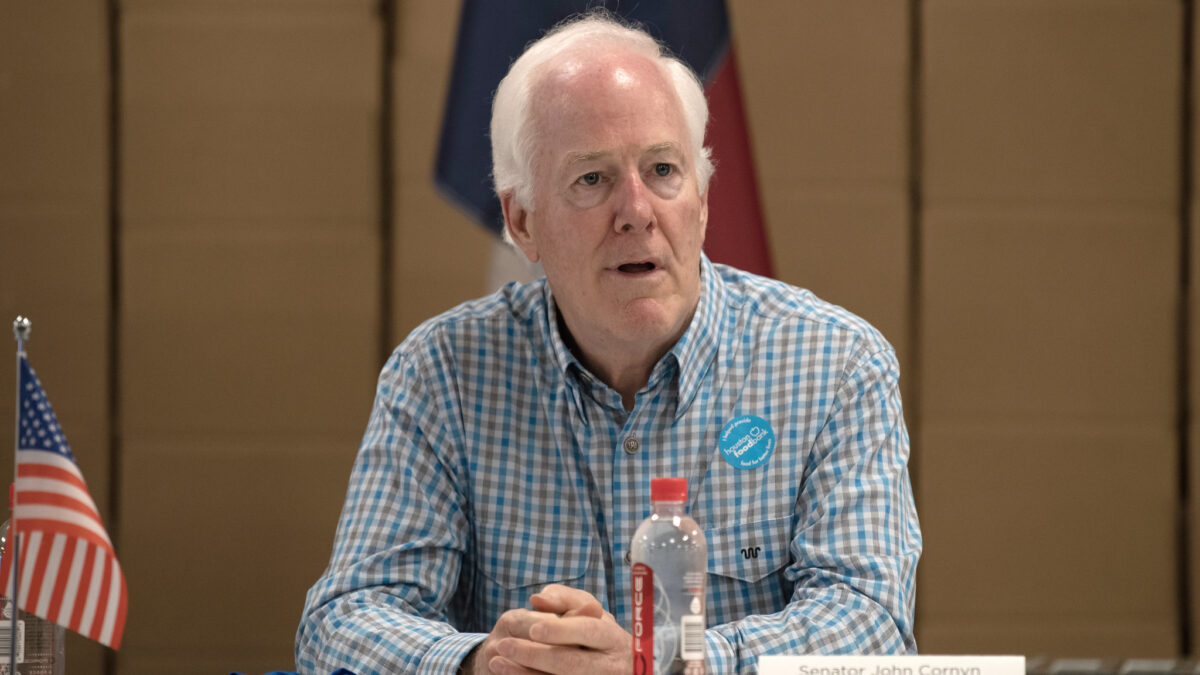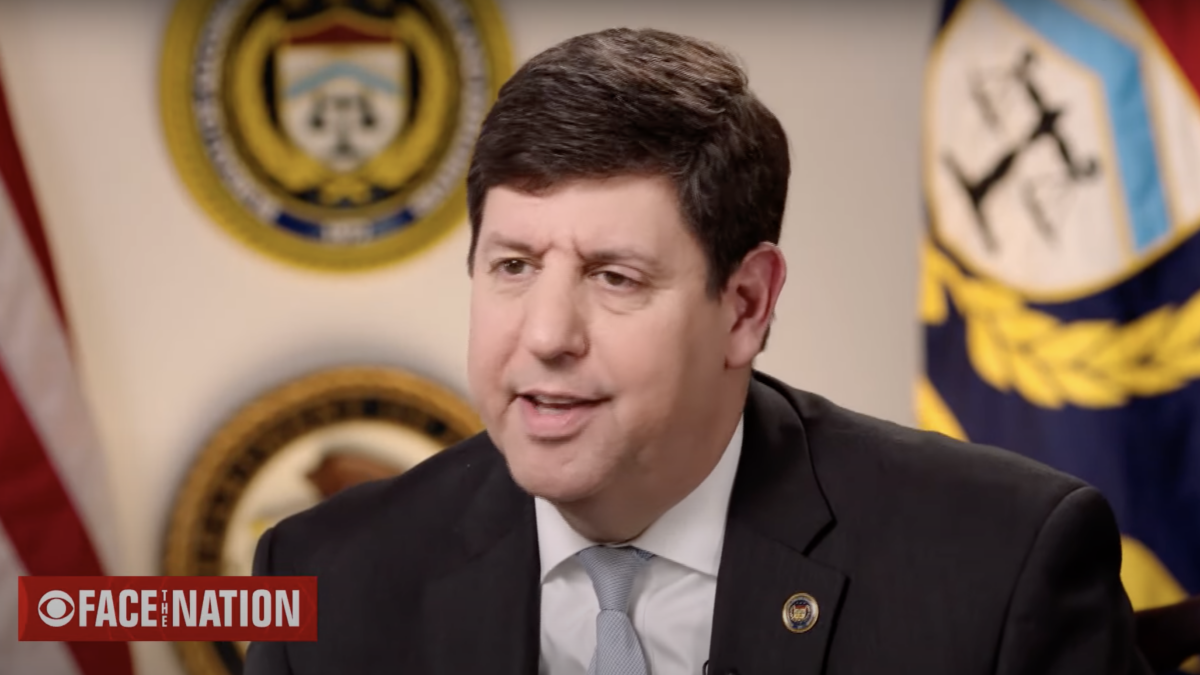
In the wake of last week’s school shooting, some elements of the American Left are reaching new depths of callous desperation in their attempt to exploit tragedy for more gun control. After all, facts and argument have failed them long ago, just as anti-gun measures have largely failed to deliver on their promises of security. Too many have been shot to death in gun-free zones for us to put much trust in creating bigger ones.
Their tearful rhetoric is likewise wearing thin, for we are now accustomed to the sad fact that every mass shooting is accompanied by shameless leftists intruding on the grief of a nation to demand decisive action before we’ve had a chance to process. While medical professionals routinely advise us not to make major decisions while grieving, the Left tellingly prefers that Americans govern our nation with clouded judgment.
It is therefore with a certain irony that, following the senseless murders at Marjory Stoneman Douglas High School, professional psychiatrist and amateur entertainer Jimmy Kimmel has diagnosed anyone who questions gun-control advocates’ rushed decisions with mental illness. While those who give more weight to authenticity than to wisdom and reason tend to fall in with whoever turns on the most convincing waterworks, the rest of us are content to treat Kimmel’s sermon as more of that same tearful rhetoric.
You Don’t Know Christianity Very Well, Folks
Within those comments and accusations, Kimmel took aim specifically at Christians—or at least at “alleged Christians,” as he described some prominent Second Amendment supporters. Kimmel’s beleaguered imagination apparently has trouble reconciling legal gun ownership with Christianity, just as it had trouble reconciling it with mental health.
Some people assume that Christians shouldn’t support or participate in gun ownership. Most secular liberals fail to understand Christian ethics on matters like this because so few are familiar with anything Jesus actually said. Their mental image of a good spiritual teacher proceeds from a vague and trite recollection that Jesus thought love was good and judging was bad. It has little to no root in any of Jesus’ actual teachings that his first disciples recorded.
Kimmel isn’t the only media figure plagued with hallucinations of mental illness. Earlier last week, “The View’s” Joy Beher put Vice President Mike Pence in the same category because he, as a Christian, learns Christ’s teachings. She made her diagnosis based on some snide comments (bereft of detail) from a former White House staffer on “Celebrity Big Brother” about Pence believing Jesus tells him things. Plenty of liberals think President Trump is basically the antichrist, but others are apparently more troubled about Pence believing in the actual Christ.
Christians Do Believe Jesus Speaks to Us—In the Bible
As astonishing as it may be to coastal elites who have segregated themselves from ordinary Americans, Christians do generally believe Jesus still teaches his church today. Christianity’s various traditions may differ on how many ways Christ speaks to us and which are more ordinary, but we all agree that he does and that the Bible is one of the most important ways—very often the definitive way, as my own Lutheran tradition teaches, along with that of most Protestants. Indeed, trying to read the Bible every day is the only way Pence mentioned hearing from Jesus.
This is hardly surprising to anyone who is actually familiar with what Jesus taught, for this is precisely how he treated scripture. When rebuking the Pharisees, he says, “God commanded” before quoting both the fourth commandment and Leviticus (Matt. 15). Likewise, when rebuking Satan, he does so with an authoritative “it is written” every time he responds to Satan with scripture (Matt. 4).
Of those who would go on to write the New Testament, Jesus said things like “he who hears you hears me, and the one who rejects you rejects me” (Luke 10:16) and “[the Holy Spirit] will guide you into all truth… for he will take what is mine and declare it to you” (John 16:13-14).
Anybody who follows Christ is also going to follow what he said about the Bible, so Christians believe Jesus speaks to us. One might reject Jesus as a bad teacher for teaching this. Or one might—in defiance of the historical record—refuse to believe he taught any such thing. But that doesn’t mean that believing Jesus’ teachings is mental illness in any meaningful sense.
Christianity Is an Open Book on Self-Defense
What, then, of the charge that preserving the right to bear arms conflicts with Christ’s teachings? What does Jesus have to say to Christians about modern issues of gun control and gun ownership? Not as much as either side of the political aisle might like. Christianity does not demand any specific political platform. On the contrary, Jesus made it quite clear that his kingdom is not of this world. Christ founded his church to deliver the forgiveness of sins, life, and salvation to the world, not to rule over it.
Yes, Christ’s kingdom does not bear arms. After all, sinners like us are saved by faith in Christ rather than relying on our good works. While the edge of the sword (or point of the gun) may coerce outwardly good behavior, it can do nothing to create that faith.
This does not mean, however, that Christians are forbidden from gun ownership, or from being soldiers, police officers, or rulers. Even as we live in the Kingdom of God by faith, we remain citizens of this world as well. Among Christ’s teachings is that God has provided the kingdoms of this world with means to restrain human wickedness, including the use of violence in some circumstances (Romans 13).
So while the Bible clearly condemns murder—the deliberate killing (with any weapon) of innocent or guilty people one is not authorized to kill—it just as clearly grants the sword to civil authorities for the sake of punishing wrongdoers and protecting people from them.
In America, the citizens who govern this country have empowered ordinary people to carry out that role as well by allowing us to arm ourselves. This was a wise decision from our founders and all who have defended our Constitution in subsequent generations.
Police are important in keeping the peace, and we generally rely on them to enforce the law so we do not endure the chaos of vigilantism. But when we come under attack, the attackers are virtually always closer to us than the police are. Americans have decided that we also want to be protected in those crucial minutes (or hours) before the police arrive.
So no, Jesus has not forbidden his followers from being armed or from allowing our neighbors the same privilege. He has not demanded that we ban guns. It is a matter of Christian freedom, and there are innumerable good reasons for Christians to exercise that freedom in a way that preserves our constitutional rights.
Christian Beliefs Are Associated with Better Mental Health
Far more important than the specific issue of gun ownership, however, is the role that Christian faith plays in the way we respond to tragedy—an advantage that likely has some bearing on why so many faithful Christians support the Second Amendment. Rather than a form of mental illness, modern research soundly indicates that religion is associated with both better mental health and better recovery from mental illness. It appears faith in general and the Christian faith in particular (most of that research is done in the largely Christian West) are actually quite helpful to America’s ability to deal with tragedy in a mentally healthy way.
This shouldn’t be terribly surprising. Inasmuch as we, as a culture, have despised faith, we have also crippled our ability to mourn. When tragedy strikes, too many of us respond like mechanics wondering why an engine broke down. We try to find the cause, replace the part, and re-engineer our way to a better engine that never fails.
When feelings are hurt, we want to outlaw words. When children go missing, we want tracking devices on every child and cameras in every corner of the world. When people are murdered, we want to ban whatever was used to kill them. All this we do out of a childlike desperation for a world in which nothing bad ever happens. Instead of taking time to grieve with one another, we cry out, “We must do something” and vow to do whatever it takes until the pain finally goes away.
But that never makes it go away. Our own efforts neither bring back the dead nor create a world without death and suffering. For that, we can only trust in God’s promises. What’s more, doing “whatever it takes” without regard for the consequences often inflicts even more pain by stripping away the protection of wisdom and dispensing with love.
It is loving to want to help those in need, but this kind of desperation knows nothing of love. Love seeks the well-being of the beloved, and it depends on truth and wisdom to guide it. But desperation seeks only its own comfort—it wants the tears and sadness to stop by any means necessary. The bloody history of the twentieth century amply demonstrates what “any means necessary” ultimately becomes in the hands of faithless utopians. The same impulse is at work in our own would-be tyrants who would surely fix the world if only they were allowed to control every aspect of it.
Faith: The Mean Between Complacency and Desperation
Faith, in contrast, is the golden mean between complacency and desperation. Rather than sit idly by in tragedy, we love our neighbors because God first loved us. We also know there is a higher power than humanity at work in the world. This means that the buck does not stop with us, and we are not burdened with engineering a salvation we can never achieve.
We are therefore free to do what it right and loving without making false promises about solving all the world’s problems. We try to do all that we can to help our neighbors and make life better for them, but we do not take on the impossible and infantile task of recreating the world so nothing bad can ever happen—an endeavor that has inflicted hell on millions for the sake of giving them paradise.
It’s easy to spot desperation in action because it never really cares what is done as long as it’s something. You can see it in the fashionable contempt for “thoughts and prayers.” These people want “real action” instead. But it’s hard to take such complainers too seriously when their idea of real action is to harass people on the Internet until they take real action. Some have even stooped to harassing a shooting victim’s father because he supports President Trump.
In exchange for tripe like this, the desperate would strip away the public expressions of solidarity and commiseration that remind victims and survivors that they are not suffering alone and unheard nor beneath the notice of the Almighty. Even if one believes religion is just a crutch, what kind of person goes around kicking away injured people’s crutches?
Desperate Decisions Often Turn Out to Be Bad Ones
You can also see desperation in the calls for change that never count the costs and benefits of that change. The latest calls to ban guns aren’t accompanied by realistic evaluations of how effective such laws would be in the hands of investigators who were given advance warning about Nikolas Cruz twice and failed to take action. They aren’t accompanied by consideration for all the lives that would be lost once targets of violent crime no longer have the means to defend themselves. They aren’t accompanied by any awareness of the long-term consequences of eliminating American freedom and an essential bulwark against tyranny.
They don’t even acknowledge the simple fact that gun ownership has been increasing even as violent crime rates have fallen. On the contrary, all these rhapsodies about non-existent “common sense gun laws everybody wants” are deliberately oblivious to the massive controversy surrounding the issue because of the heavy cost of curtailing legal gun ownership. It is no different from banging on the dashboard of a car that won’t start—you do it because you think it’ll make you feel better, not because it will actually help.
Every tragic shooting that grabs the public attention shows us anew that the desperate always try to prey on those in mourning because their grief leaves them vulnerable to sharing in that desperation. But the faithful know there is a better way.
For now, the wisest course of action is one prescribed by Christ—mourn with those who mourn. The time will come—as it always does—to make a rational and loving decision about what needs to be done. Liberals claim that waiting does no good because it has consistently failed to produce any action, but the better explanation is that cooler heads have consistently recognized that the actions leftists want are not what is best for our nation. There’s nothing mentally ill or unchristian about recognizing that.









